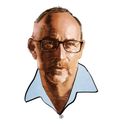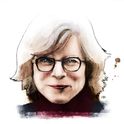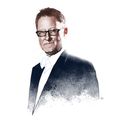What is the first news event you can recall?
The death of Stalin, reported on the radio. I was skiing with my parents. They’d been fighting for as long as I could remember and they were on the brink of divorce. I was amazed to see them hugging and kissing.
What is the biggest problem?
Truth. None of the big problems can be solved, not climate change, not our relation to AI, not the malevolence of social media, without regard for truth. Not “my truth” à la Meghan. Proper evaluation of evidence, respect for facts and acknowledgement of them while accepting that properly established facts may not be the end of the argument—but a springboard to go forward.
What is your favourite quotation?
How can Nietzsche’s biographer choose from all his aphorisms? “He who fights with monsters should see to it that he does not become one himself” seems appropriate right now. Committed campaigners on all sides do well to remember the danger.
Which of your ancestors or relatives are you most proud of?
My grandmother Kiss, whom I adored, was the muse and inspiration of the Norwegian explorer Roald Amundsen, first to navigate the Northwest Passage and first to the South Pole. Amundsen called his airplanes after Kiss. Each daily entry in his last diary was written as a love letter to her. Amundsen taught my father to fly; he became an RAF pilot in the Second World War. I’m three-quarters Norwegian, I spent my childhood there. Roald and Kiss are an extraordinarily inspiring part of my Norwegian heritage.
What is the last cultural experience that brought you to tears?
The overture to Wagner’s Tristan and Isolde at Glyndebourne, with the London Philharmonic Orchestra conducted by Robin Ticciati. Tears also coursed down my cheeks as I read extracts in the Sunday Times from the prison diaries of Alexei Navalny, recently published as a book. The bravery of such a soul can only make you weep and realise how far you are from comparable nobility and purpose.
Paul Gauguin led a remarkable life—his upbringing in Peru, helping to dig the Panama Canal, friendship with Van Gogh, (mis)adventures in Polynesia—quite aside from his art. Is that what drew you towards him for your latest biography?
No. It was a moral question. The National Gallery’s 2019 show Gauguin’s Portraits provoked a strong reaction: Gauguin was a paedophile who spread syphilis throughout the South Seas, he should be cancelled, his pictures should probably be burned. Having always loved his pictures and coming out of writing about Nietzsche, could I really use the lazy old excuse of loving the art and hating the man? So I started researching. What I found became the book.
You don’t apologise for Gauguin, but you do allow him to be complex. Are we too quick to impose our 21st-century prejudices on the past?
I think we are too quick. I can do no better than quote George Orwell in “Why I Write”:
“Desire to see things as they are, to find out true facts and store them up for the use of posterity.” That’s my job. Find facts. Provide truthful historical context so people can make up their own minds.
If you were to write a biography for anyone currently living, who would it be?
My fellow Norwegian Karl Ove Knausgård has written thousands more pages of autobiography than most. It could be fun to unpick them, maybe in a deliberately short biography? More seriously, I’d love to write the biography of Yulia Navalnaya—but, as I don’t speak Russian, regretfully I would not be up to the task.
What would people be surprised to know about you?
That I was once junior milking champion of Buckinghamshire. My parents didn’t believe in a conventional education. They sent me to farm school, where lessons were secondary to husbandry. I learned to plough admirably straight furrows; my best friend was a lovely pig called Wilhelmina. It gave me a great hunger for the other side of the fence: intellectual enquiry and so forth.
What do you most regret?
I don’t do regret. It leads almost invariably to what Nietzsche called ressentiment, a very corrosive state of mind. I far prefer his robust principle that whatever doesn’t kill you makes you stronger. But I do wish I had persisted with piano lessons.
Sue Prideaux’s Wild Thing: A Life of Paul Gauguin (Faber) is out now in hardback












